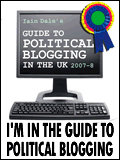LONDON (Reuters) - The press should continue to be self-regulated despite such lapses as pursuing Prince William's on-off girlfriend and bugging the royal household's phones, a parliamentary committee said on Wednesday.
The notoriously aggressive print media are regulated by a newspaper-funded Press Complaints Commission (PCC) rather than by a government body, which papers say allows members of the public to have complaints heard more quickly and cheaply than in court.
Parliament's culture committee said the commission should continue to supervise the industry, but its role might need further investigation after "less than impressive performance" in restraining tabloid excess.
The comments followed scathing criticism of the media last month from former Prime Minister Tony Blair who called it a "feral beast" that tore people and reputations to shreds.
In its report, the culture committee highlighted two issues -- the harassment of Prince William's girlfriend Kate Middleton and the royal household phone bugging, for which a reporter for the country's biggest-selling newspaper was jailed.
In March, Middleton, whose house was being mobbed by paparazzi, filed a formal complaint with the PCC after the Daily Mirror printed a picture that she said was taken as a result of harassment.
The complaint was withdrawn after the Mirror apologised.
"The Press Complaints Commission took too long to act to protect Kate Middleton from clear and persistent harassment," the committee's report said.
The committee went on to describe the royal phone bugging by the News of the World as "one of the most serious breaches of the code (of conduct) in recent times".
Clive Goodman, the paper's royal correspondent, was jailed and his editor-in-chief resigned after it emerged that Goodman had eavesdropped on voicemail from royal household mobile phones.
"We are in no doubt that the editor of the News of the World was right that he had no choice but to resign," the report said.
The committee said there was no case yet for statutory regulations or signs of public support for a privacy law.
"Self-regulation by the press is infinitely preferable to the alternative," committee chairman John Whittingdale said.
I fully support the parliamentary committee's decision on this matter.









No comments:
Post a Comment